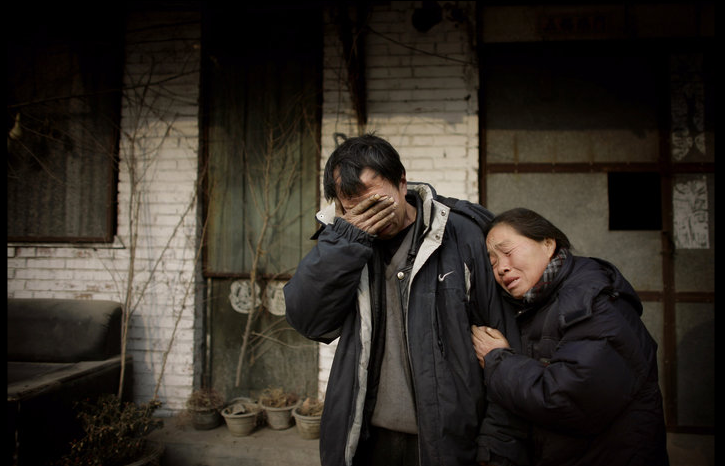Some of the most valiant resisters such as Pan Rong and Tang Fuzhen have indeed become household names in China and assumed folk hero status very much like that of Australia’s Ned Kelly. Tang Fuzhen paid the ultimate price of taking her own life in a bid to stop the demolition of her cloth factory.
Expropriation of land in China has become one of the most polemical social issues. Forced eviction and demolitions often result in violent confrontation between residents and government-backed property developers. This problem is even more pronounced in rural China where corrupt local officials collude with real estate developers to dispossess farmers of their only livelihood.
Many experts and commentators blame the ‘Regulation Concerning the Management and Expropriation of Urban Residences’, promulgated by the State Council in 2001, as the principal culprit. At the end of last year, five law professors from Peking University petitioned the Standing Committee of the National People’s Congress, China’s supreme legislative body, to amend or abolish the regulation. They appealed on the basis that the existing regulation is in clear contradiction with both the Chinese Constitution and the newly enacted Property Law.
The existing regulation on expropriation was enacted with the purpose of clearing hurdles for rapid urban development in China, but there was inadequate attention paid to the protection of private property rights. Most importantly, the regulation was also ambivalent on the important issue of land expropriation for public interest. It is commonly recognised across many jurisdictions that it is necessary for the government to compulsorily acquire private holdings in the interest of public welfare such as building infrastructure. But the ambiguity on the definition within the Chinese regulation provides fertile ground for corrupt officials and real estate developers to expropriate land in the name of public interest without the need to compensate people on just terms.
It was recently exposed that a university in southern China expropriated a large tract of framing land for the purpose of building educational facilities. But a large portion of that compulsorily acquired land was resold to a commercial property developer at a premium. The handsome profit made by the university was used to pay off its debt and that of the municipal government. The grossly inadequately compensated famers could do little to seek redress.
Another thorny issue is compensation for expropriated land. At the moment, the compensation scheme is wildly arbitrary, especially in the countryside. Until a transparent and market-based fair compensation scheme has been developed, we will continue to witness endless protest against inadequately compensated expropriation projects.
The State Council just released a new draft regulation on expropriation for public consultation which more clearly defines the scope of public interest, which includes land acquired for defence facilities, infrastructure projects, public health and education facilities, public housing estates and so on. If this draft legislation can be enacted, this could provide a firmer basis for people to challenge unfair commercial acquisition of land in the name of public interest. It also envisages a more market-based pecuniary compensation scheme and proposes to outlaw barbaric eviction techniques such as the termination of water supply.
But this potential new legal protection can be quite powerless in the face of immensely powerful government closely tied together with real estate developers. A compliant and under-resourced court system can hardly be relied upon to constrain the power and authority of government.
A Chinese blogger sarcastically remarked that the film Avatar can serve as a great manual on how to resist unjust eviction. Indeed, without developing a sound and fair expropriation and compensation system, Beijing can count on a very bumpy ride on the road of its great urbanisation drive.


In China, the legal regimes for urban and rural lands are different. Urban land is state-owned while rural land is collectively owned. The new draft regulation only covers urban land. In fact, Tang Fuzhen’s land is rural, so the ‘Regulation Concerning the Management and Expropriation of Urban Residences’ is not applicable.
But it only points to the fact that more legal reforms remain to be done, not only on urban but also on rural land. However, there is no short supply of regulations in China; the key issue is whether they are implemented.